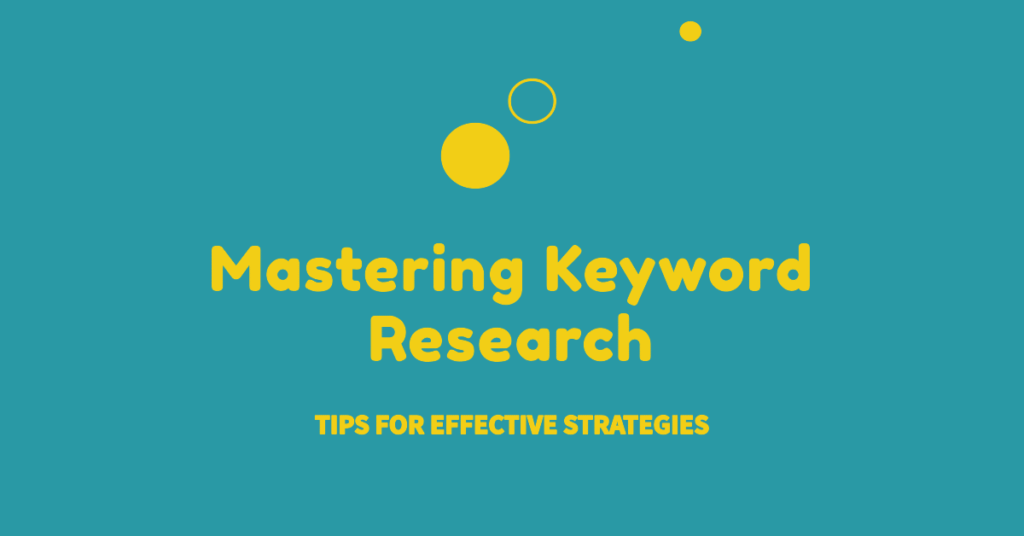Keywords vs. SEO: What You Need to Know for Digital Success
Are you struggling to boost your website’s visibility on Google despite implementing a solid keyword strategy? Many digital marketers face this challenge. Keywords alone aren’t the magic solution. They are one part of a bigger SEO strategy. Understanding how keywords and SEO complement each other is the key to improving rankings and reaching your target audience effectively.
In this article, we’ll explore how keywords and SEO work together, and how you can use both to increase your online visibility. By the end, you’ll have a deeper understanding of how to leverage both in your content strategy to enhance your SEO performance.
What Are Keywords?
Keywords are the search terms that users enter into search engines when looking for information. They guide search engines in understanding the context of your content. Choosing the right keywords ensures that your content aligns with user intent and helps you rank for relevant topics.
For example, a broad keyword like “SEO services” is competitive but not very specific. However, a long-tail keyword like “affordable local SEO services for small businesses” targets a niche audience, increasing the likelihood of conversions due to more refined user intent.
The Evolution of Keyword Strategy: From Matching Keywords to Understanding Search Intent
With the evolution of Google’s algorithms, semantic search has become a core part of SEO. Google doesn’t just match keywords anymore; it understands the context behind them. This is where Latent Semantic Indexing (LSI) keywords come into play. LSI terms are related keywords that help search engines better grasp your content’s relevance.
For example, for the keyword “affordable SEO services for small businesses,” LSI terms might include “local SEO for startups,” “budget SEO solutions,” or “cost-effective SEO strategies.” Including these related terms helps your content address the user’s query more comprehensively.
Types of Keywords
| Keyword Type | Description | Example |
|---|---|---|
| Short-tail keywords | Broad terms with high search volume and competition. | “SEO” or “digital marketing” |
| Long-tail keywords | Specific phrases with lower competition but higher conversion potential. | “best SEO tools for small businesses” or “SEO for eCommerce websites” |
| Transactional keywords | Keywords with strong buying intent. | “buy SEO services for small businesses” |
| Navigational keywords | Keywords used to find specific websites. | “SEO tools Ahrefs” |
What Is SEO?
Search Engine Optimization (SEO) is a comprehensive strategy to improve your website’s visibility on search engines. SEO involves optimizing your entire website to ensure it is accessible, authoritative, and user-friendly.
SEO can be likened to building a house. Keywords are the foundation, while SEO is the structure (walls, roof, etc.) that makes everything work together. Even the best keyword strategy won’t help if your SEO isn’t solid.
Key Components of SEO
On-Page SEO
On-page SEO focuses on optimizing individual pages of your website, such as content, HTML structure, and keyword usage. This is the most direct way to ensure that search engines can easily crawl and index your content.
Off-Page SEO
Off-page SEO refers to actions taken outside your website to improve its search engine ranking, such as building backlinks and social media presence. Backlinks from reputable sites signal authority to search engines.
Technical SEO
Technical SEO involves optimizing the infrastructure of your website to make sure search engines can crawl and index your site properly. Key elements include site speed, mobile responsiveness, and URL structure.
Want to read: SEO vs. PPC: Which Is More Effective for Small Businesses?
How Do Keywords and SEO Work Together?
SEO and keywords work hand in hand. Keywords provide the foundation, while SEO structures your content for maximum visibility. Here’s how they complement each other:
Example: Imagine creating content for “SEO agency.” You choose keywords like “SEO agency,” “best SEO agency for small businesses,” and “affordable SEO agency for startups.” Without SEO, your content might lack structure, slowing your rankings. SEO optimizes your site by ensuring proper keyword placement, schema markup, and mobile optimization, giving your content the best chance to rank higher.
Why Are Keywords Still Important in SEO?
Despite the advancements in algorithms, keywords remain essential for aligning your content with user intent and improving visibility.
Relevance
Keywords are the first signal to search engines about what your content is about. Without appropriate keywords, search engines may not understand your content’s purpose.
Visibility
Without proper keyword optimization, your website could be invisible to search engines. It’s essential to target the right keywords to improve your site’s visibility.
User Intent
Keywords help align your content with what users are looking for, which leads to better engagement and conversions.
How Do Keywords Influence SEO Strategies?
Keywords shape both your content and site structure, ensuring alignment with user intent. Here’s how they guide your SEO efforts:
Content Creation
Keywords guide you in creating content that addresses user needs. For example, targeting the keyword “best SEO agency in 2025” ensures that you meet the search intent of users looking for this information.
Website Structure
Organizing your site around relevant keywords ensures that search engines can crawl your content easily, improving overall SEO performance.
User Experience
Keyword-optimized content aligns with what users are searching for, enhancing engagement and reducing bounce rates.
How to Conduct Effective Keyword Research
Keyword research is the foundation of any successful SEO strategy. Here’s how to conduct effective research:
Brainstorm Topics
Start with broad topics that resonate with your audience. This helps you find areas to target within your content.
Use Keyword Tools
Platforms like Google Keyword Planner, SEMrush, and Ahrefs help identify high-traffic keywords and assess competition.
Analyze Competitors
Look at competitors’ rankings to identify gaps or opportunities. This can help you identify keywords that your competitors might be missing.
Select Long-Tail Keywords
Focus on specific phrases that may have less competition but higher conversion rates. Long-tail keywords can be more targeted and effective for SEO.
Common Mistakes in Keyword Usage
Avoid these common pitfalls when using keywords:
Keyword Stuffing
Overusing keywords can harm both SEO and the user experience. It’s essential to maintain a natural flow of content.
Ignoring User Intent
Keywords should reflect what users want, not just what you think will rank. Focus on creating content that answers the user’s query.
Neglecting Updates
Keywords need regular updates as trends shift. Regularly monitor and refresh your keywords to stay relevant.
Best Practices for Keyword Integration
To make the most of your keywords, follow these best practices:
Natural Placement
Avoid forcing keywords into content. Let them fit organically, enhancing readability and engagement.
Strategic Locations
Use keywords in titles, headers, and meta descriptions to improve SEO and user experience.
Content Quality
Prioritize valuable content over keyword stuffing. High-quality content is more likely to rank higher.
Conclusion
Keywords and SEO are distinct but complementary elements in digital marketing. While keywords help define your content, SEO ensures your content is accessible, valuable, and ranks well. By integrating both strategically, you’ll drive more traffic and create a better user experience.
Key Takeaways
- Keywords are essential for guiding search engines to your content.
- SEO involves more than just keywords; it’s about optimizing your site for the best user experience.
- Use keyword research to align your content with user intent and increase visibility.

